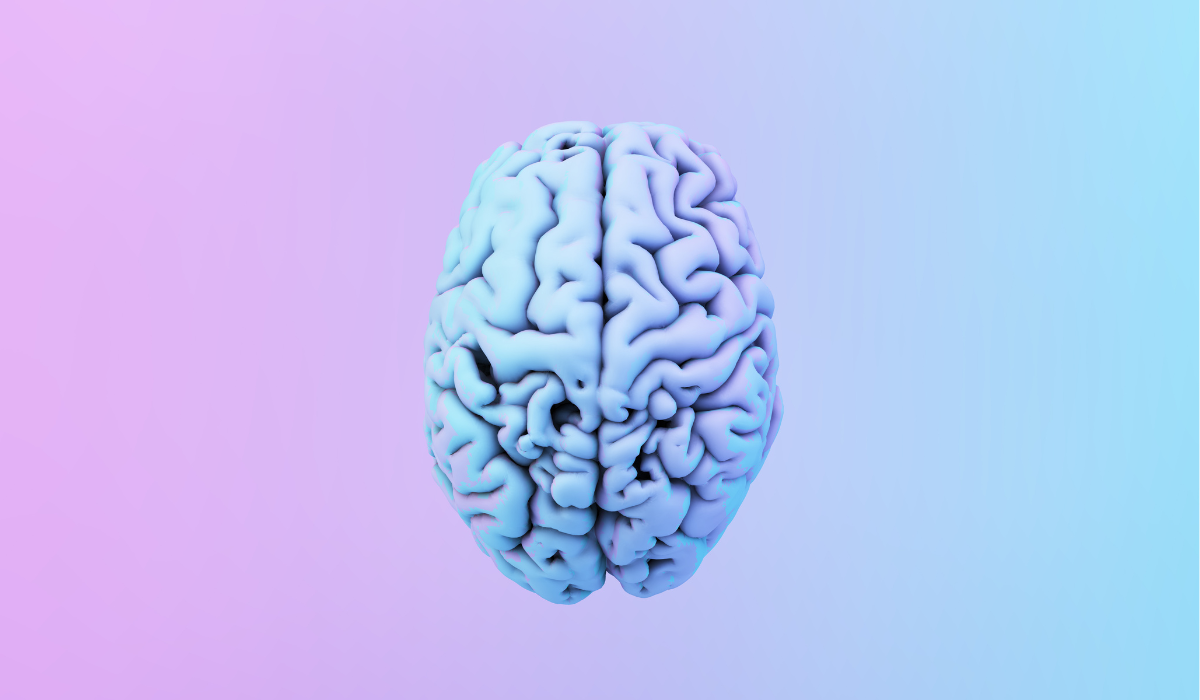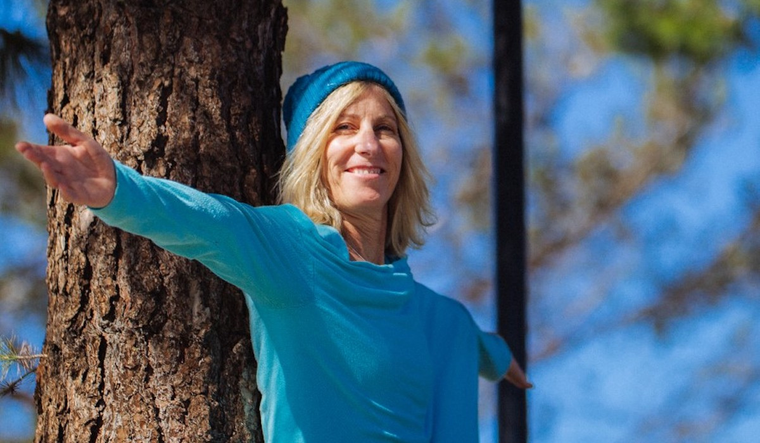7 Truths Too Many of Us Are Still Missing About Our Brain Health

Today marks the start of Alzheimer’s and Brain Awareness Month, which is a time to shine a light on a disease that touches millions, as well as recognize the caregivers, loved ones, and advocates who are impacted by it. But it’s also a chance for all of us to make sure we’re taking care of one of our most important organs: the brain.
Thankfully, more of us are talking about brain health as the important factor to our overall wellbeing that it is. What’s more, a growing number of healthcare centers around the country are focusing on the topic, such as the pioneering Women’s Alzheimer’s Movement Prevention and Research Center at Cleveland Clinic, which celebrates its fifth anniversary this month.
Still, too many myths persist—like the idea that memory loss is an inevitable part of the aging process or that there’s little we can do to prevent cognitive decline. The truth is that the brain is quite resilient, capable of new growth and repair in midlife and beyond, and the lifestyle choices we make and the connection, purpose, and meaning we feel in our lives really do matter.
To help you assess and take charge of your brain health this month, here are seven facts too many of us don’t understand, and the simple steps that are proven to make a powerful difference when it comes to protecting your mind.
Truth No. 1: Many women aren’t aware that Alzheimer’s (and other health conditions) impact them differently. A new national survey of women in the U.S. by the Women’s Alzheimer’s Movement Prevention and Research Center at Cleveland Clinic finds that misunderstanding persists when it comes to many of the diseases that disproportionately impact females. For example, do you know that two-thirds of Alzheimer’s disease diagnoses are in women? (The new survey found 32 percent of women believe it affects both sexes equally.) Do you realize that heart disease is the leading cause of death in both men and women in this country? (A staggering 62 percent of women don’t realize it impacts both sexes at similar rates.)
The takeaway: “Midlife is a critical time for women’s health, and making informed decisions starts with women understanding their health risks and getting the appropriate screenings,” says Beri Ridgeway, MD, executive vice president and enterprise chief of staff at Cleveland Clinic. This is a priority at the Women’s Comprehensive Health and Research Center at Cleveland Clinic, which supports women in midlife and beyond and has helped more than 8,600 patients in the year since it was founded.
Don’t have a center like this near you? Join chief visionary and strategic advisor, Maria Shriver for the Women’s Health Forum on June 5, a digital experience where you’ll be able to stream content at your convenience and get insights and other important content focused on women’s health.
Truth No. 2: Alzheimer’s disease can be prevented with lifestyle changes. For far too long, many of us—including our doctors—didn’t think Alzheimer’s disease was preventable. We assumed our genes were our destiny; if cognitive decline ran in the family, we thought that could be in our future as well.
Thankfully, we know better now, says Jessica Caldwell, PhD, the director of the Women’s Alzheimer’s Movement Prevention Center at Cleveland Clinic. “We know that about 40 percent of current cases of dementia and Alzheimer’s disease could have been prevented if we’d known decades ago how lifestyle contributed to risk,” Dr. Caldwell tells The Sunday Paper. “Now, the science supports that doing things like not smoking, not drinking too much, avoiding diabetes, and taking other steps are so important when it comes to how our brains age.”
The takeaway: Understand that by doubling down on the habits that promote overall health, you’re doing a lot to help your brain health, too. Exercising regularly (aim for at least 150 minutes of moderate-intensity aerobic exercise per week), eating a healthy diet, and getting enough sleep are all key. Not smoking and limiting (or even better, eliminating) alcohol are also crucial. If you feel overwhelmed by these healthy lifestyle to-dos, simply do what you can, says Dr. Caldwell: “If there’s a recommended guideline, try to work up to that benchmark. And if you feel like you have room to do more, go ahead and do more.”
Truth No. 3: Treating hearing loss can help reduce your risk of dementia. Sadly, only one out of five people who could benefit from a hearing aid actually wears one. It’s a shame, especially considering research out of Johns Hopkins Medicine shows a clear link between hearing loss and dementia. In fact, mild hearing loss doubles a person’s risk of dementia, moderate hearing loss triples your risk, and those with severe hearing impairment have five times the risk. Experts say that’s because hearing loss causes the brain to work harder, possibly hurting other functions like thinking and memory. Poor hearing also causes people to be less social and more isolated, which can lead to brain shrinkage.
“What I tell patients is that if you don’t use it, you lose it,” Mia Miller, MD, an otolaryngologist at Cedars-Sinai Medical Center, told Maria Shriver on TODAY. “If you’re not getting verbal information to the brain and you’re not using that language perception abilities, you may lose some of that function over time.”
The takeaway: Ask for a hearing exam at every annual physical, no matter how old you are. “We check hearing in children in pediatric offices all the time,” says Dr. Miller. “We check sight throughout people’s lives. Hearing should be screened the way sight is screened. It doesn’t take very long, and it has a huge impact.”
Truth No. 4: Menopause actually reshapes the female brain. For years now, Lisa Mosconi, MD, director of the Weill Cornell Women’s Brain Initiative and author of The Menopause Brain, has been educating the public about how the female brain ages differently than the male brain, and how hormones help explain why. Recently, Dr. Mosconi uncovered a way to measure estrogen activity in the brain and discovered something remarkable: Estrogen receptors in the female brain don’t shut down after menopause, as experts once thought. In fact, the female brain makes more estrogen receptors throughout the menopause transition, indicating the female brain is eager to sop up as much of this protective hormone as it possibly can.
“Estrogen receptors are not just permanent features on brain cells, they must be constantly made,” explains Dr. Mosconi. “Our study looked at women from age 40 to 65 and found these estrogen receptors are being actively made for many years after menopause.” Translation: The female brain is hungry for estrogen. “There’s no other reason to have all of these receptors.”
The takeaway: Dr. Mosconi’s research is more proof of the brain’s amazing ability to adapt to hormonal changes—something that should be celebrated. “It’s essential for women to understand that the changes occurring in the brain during menopause are an expected part of the transition, which can, however, bring on many of the most bothersome symptoms of menopause,” Dr. Mosconi tells The Sunday Paper. “By understanding how menopause affects the brain, women can better navigate this phase of life with confidence and resilience.”
Truth No. 5: Women’s brains get an “upgrade” as we age. Louann Brizendine, a pioneering neurobiologist who’s focused much of her career on understanding the differences and similarities between women’s and men’s brains, says one of the most interesting (and underappreciated) aspects of her research is how women’s brains get an “upgrade” in mid-life and beyond. Each decade, we get happier, we gain more focus, and we even get more direct. “We start to redefine the rules of relationships and speak up for what’s right,” she tells The Sunday Paper. “We become more engaged and more thorough and better able to concentrate. We keep our eye on the prize.”
The takeaway: Dr. Brizendine says what she most wants women to know is that caring for our minds and bodies through all stages of life is critical. And if you’re dealing with the brain changes that so often come with the menopause transition, you can trust that things will get better. “It’s important for us to have hope and to know that it’s worth it—to keep on persevering and doing the best you can for yourself because it matters for your brain, it matters for your happiness, it matters for the people you love in your life, and it matters for the joy you can have,” she says.
Truth No. 6: There’s a huge toll on the caregivers for those who are suffering from brain health issues—and we don’t talk about it enough. When Bruce Willis was diagnosed with frontotemporal dementia (FTD), his wife Emma Heming Willis struggled with whether and how to make the news public. She talks about the day her husband received his diagnosis, and how there was “no guidance, no hope, just shock.” Too many loved ones of those diagnosed with dementia can relate to Emma’s experience.
In her new book, The Unexpected Journey, Emma shares that all she really wanted is someone who’d been through what she was going through to tell her, “This feels terrible right now. Your life is in shambles. But it’s going to be okay. Here are some things to think about and put in place so you cannot just survive but thrive.” Because she didn’t get that advice, she wrote the book she wishes someone handed her after her husband’s diagnosis.
The takeaway: “For me, knowledge is power, and building a supportive community around me has been vital,” Emma told The Sunday Paper. “Dementia not only affects your loved one but can shake a whole family's foundation, and self, if you allow it. Identifying the right resources to educate and enlighten myself has been powerful and has allowed me the space to continue to move forward in the most positive way so that I can be the best mother, wife, daughter, friend, and care partner. I want to be able to share that with the next person who finds themselves here.” To pre-order Emma’s book, click here.
Truth No. 7: You can calm anxiety with food. When we think about brain health, many of us jump immediately to cognition and what we can do to stave off dementia, Alzheimer’s, and other conditions marked by cognitive decline. Yet there’s another brain health condition that many of us struggle with in the here and now—anxiety—and there are a number of ways to find relief, starting with the foods we eat.
Uma Naidoo, MD, a board-certified nutritional psychiatrist, professional chef, and author of the bestsellers This is Your Brain on Food and Calm Your Mind with Food, says too many people believe they have to take medication to calm anxiety. “While medications can be lifesaving, these are not the only cures,” she tells The Sunday Paper. In Dr. Naidoo’s clinic, she uses nutritional psychiatry and a lifestyle plan—which includes breathwork, movement, exercise, hydration, and healthy tweaks to meal prep and diet—to help her patients find lasting relief.
The takeaway: Dr. Naidoo says the best place to start is a “nutritional psychiatry plate.”
Here’s how to create one:
— Add as many plants and vegetables as possible, aiming for as many colors and textures as you can.
— Add a healthy protein, and keep in mind the serving size should be about the palm of your hand.
— Add healthy fats, such as avocado or olive oil.
— Add a healthy, complex carbohydrate, such as a small portion of quinoa (which also provides protein and fiber).
Please note that we may receive affiliate commissions from the sales of linked products.



